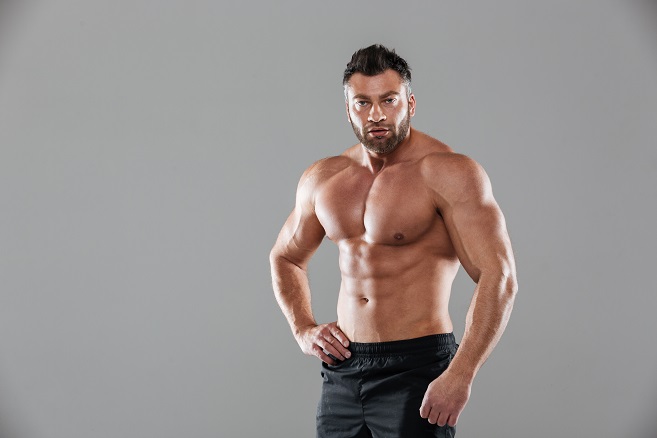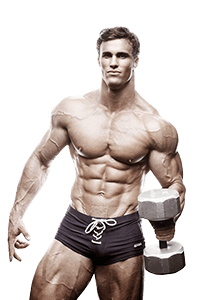Hormone Balance For Muscle Building
Hormone Balance For Muscle Building-The Essential Role of Hormones
Struggling to gain muscle? Are your hormones to be blamed? Find out more in this blog on hormone balance for muscle building.
Most of us tend to take our body hormones for granted until they go for a toss and stop performing as they ideally should. After all, healthy hormones help us stay in top shape and perform routine activities. A slight imbalance of hormones can make it frustrating to build muscles or not see the desired results. However, a majority of us somehow overlook the significance of hormones in muscle growth and our daily lives with training and diet taking the center stage.
Let us have a close look at the importance of hormone balance for muscle building.

How Do Hormone Balance For Muscle Building Work?
Let's get started with the basics. Before we read about anything else, let us first realize the significance of hormones. Our hormones are critical to regulate our metabolism - the reaction that processes our food intake and governs our energy. Our body gets flooded with a wide range of hormones that are either catabolic (those releasing energy) and anabolic (those using energy). Furthermore, the muscles that get stimulated during exercises get subjected to the effects of these hormones. For our muscles to grow, we would require higher amounts of anabolic hormones than catabolic hormones.
- These anabolic hormones include:
- Testosterone
- Growth Hormone
- Insulin
- Insulin-like growth factors (IGFs)
During the process of anabolism, our body grows as the process involves the formation of simple molecules forming in tandem into more complex, larger ones while retaining energy for muscle repair. Catabolic hormones like cortisol inhibits muscle growth as the process gets instrumental in breaking down molecules and releasing energy, for instance, food digestion. Our body starts losing muscle mass if there is a higher imbalance of catabolic hormones like cortisol, adrenaline, and glucagon. Any disruptions in the levels of hormones, for instance, those as a result of a thyroid complication, will have a negative effect on these processes and the overall metabolism.
Let's now get started with the key hormones.
It is important to remember while creating a training plan to consider hormones that affect muscle strength and growth differently. For bodybuilding purposes, our anabolic hormones play a critical role when it comes to the stimulation of muscle growth. On the other hand, hormones such as cortisol, glucagon, and epinephrine result in an increase in the availability of glucose (the fuel source of our body) and aid intense workouts, cardio sessions, and strength training.
Testosterone
Testosterone (a male sex hormone) is primarily produced by the testicles and albeit in lower quantities by the ovaries in women. This hormone is responsible for regulating strength, fat distribution, bone mass, libido, sexual performance, and muscle mass. Classified as an anabolic hormone, it stimulates an increase in the count of nervous system's neurotransmitters to improve muscle size.
Testosterone can be enhanced by:
- Performing multiple sets of each exercise
- Including compound exercises in workout sessions
- Keeping workouts shorter than 1 hour
- Working out legs to stimulate the largest muscles
- Keeping resistance training to a maximum of 80-90 percent
Growth Hormone (GH)
This hormone is responsible for supporting the development of skeletal muscle tissue and body strength while eliminating body fat. The production of natural growth hormone declines with age that means you will accumulate more body fat if less growth hormone is produced. Growth hormone is released by the body during the Rapid eye movement (REM) cycles of sleep. These times are used by the body to repair damaged muscle cells, if any. Growth hormone also gets released when we exercise, especially during compound movement that involves multiple joints, for instance, bench presses or squats. To improve the production of growth hormone, you should shorten your workouts (about 30-45 minutes).
Insulin
Insulin supports the product of food breakdowns in the liver and muscles. This anabolic hormone is entrusted with the task of transporting amino acids into muscle cells for tissue repair. This hormone can also have many positive effects on muscles but it may become a hurdle if you are struggling with excess body fat. It is worthwhile to remember that insulin production is primarily guided by exercise and diet, so it can be something on which you can a good control. To improve the production of insulin, you should prefer healthy fats that insulin is less sensitive to, for instance, coconut oil, nuts, fish, etc.
Cortisol
This catabolic hormone gets triggered by emotional and physical stress. Cortisol breaks down muscles when the level of blood sugar is low. This hormone prevents muscle gain by breaking down the tissue and this is one of the biggest reasons why those into bodybuilding and powerlifting make every possible effort to keep cortisol levels to a minimum. To improve the level of cortisol, you should avoid lengthy intense workout or cardio sessions. Unfortunately, exercises that result in the release of growth hormone can stimulate high cortisol levels.
The importance of hormone balance for muscle building is not difficult to comprehend. You can improve a hormone balance for muscle building by working with different exercise routines or using high quality prohormones or SARM's. To summarize, it is best to keep the release of your catabolic hormones by keeping the duration of your workouts or cardio sessions shorter so you don't end up excessively stressing your muscles. You should also engage in weight training and High-intensity interval training (HIIT) cardio workouts to stimulate your anabolic hormones for muscle growth.






